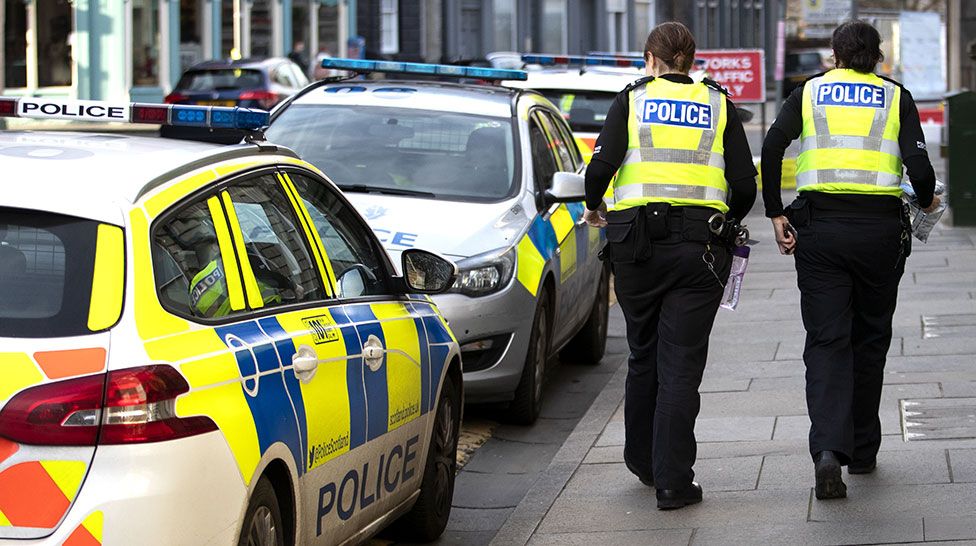Three-quarters of Police Scotland incidents not crimes, report says
- Published

A lack of support for people suffering from mental health crises is having a major impact on Police Scotland, according to a new report.
HM Chief Inspector Constabulary in Scotland found 73% of incidents attended by police last year did not lead to any crime being recorded.
The inspector, Craig Naylor, linked it to more people suffering mental ill-health being referred to the police.
Officers were spending more time taking them to A&E, he said.
Mr Naylor said it was an example of where police were filling in the gaps while public sector organisations were still under strain as a result of the pandemic.
The inspector's annual report for 2021/22 has been published as Police Scotland officers prepare to "withdraw goodwill" over a pay dispute.
The report revealed that the number of incidents recorded by Police Scotland fell by 33,373 (2.2%) over the same period last year.
"What is of more concern is high level of incidents that do not result in a crime being recorded," the report adds.
"During the year, over 73% of incidents created led to no crime being recorded suggesting that the demand from non-crime matters is considerable".
It goes on to say: "There is a strong and growing narrative that demand on policing is changing, with considerable challenges around mental health crisis and the lack of capacity to effectively manage the transition from a police response to a health treatment service."
Mr Naylor's report said the pandemic had hit some organisations and demand had transferred to policing.
'Elongating police incidents'
"We heard from many police officers about individuals suffering mental ill-health being referred to response policing, either because individuals were receiving community-based treatment but had no assistance out of normal office hours or, in some cases, there was no appropriate support available at that time," it said.
"This often leads to officers supporting the person in crisis and seeking suitable medical intervention through accident and emergency departments, potentially elongating police incidents for many hours."
He said it was "abundantly clear" that a police response was not the most suited to those in mental health crisis.
And he warned that some services were not returning to pre-pandemic levels.
"The demand shift can be seen in many other areas where services have retreated to a skeleton service operating Monday to Friday from 9-5 during the pandemic and appear not to be returning to the same levels of service provided prior to Covid-19.
"This demand shift inhibits proactivity in policing and spreads the service even more sparsely across all areas."
Related Topics
- Published29 June 2022
- Published21 June 2022
- Published12 June 2022